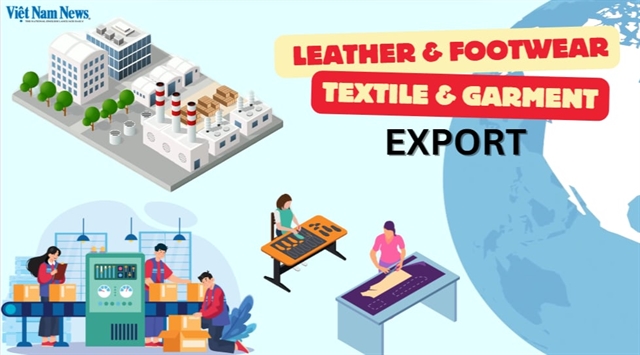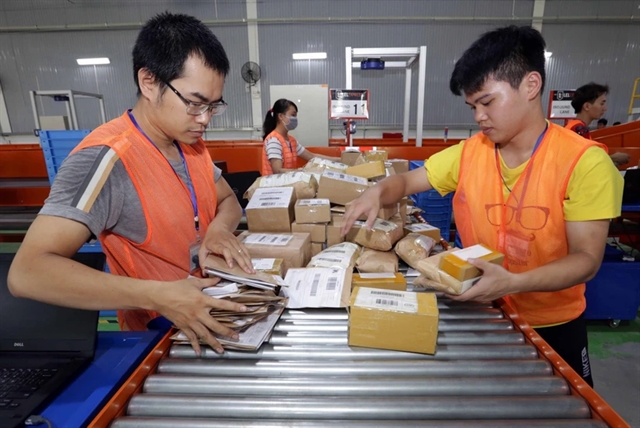 Economy
Economy

 |
| Workers sorting out packages at a delivery company in HCM City. — VNA/VNS Photo |
HÀ NỘI — E-commerce platforms have been a game changer for Việt Nam’s textile and garment industry, said industry insiders and experts. For the first time, manufacturers can bring their entire product lines to consumers, significantly reducing prices and expenses.
“These platforms have allowed us to overcome geographical limitations and better serve our customers in the digital age,” said Thân Đức Việt, General Director of May 10, one of Việt Nam’s largest textile groups.
May 10 Corporation has been using e-commerce platforms to diversify its sales channels and enhance customer reach. Since 2021, the company has opened online stores on major platforms such as Shopee, Sendo, Lazada and Tiki.
He said with rapid digital transformation, online sales channels are becoming an essential strategy for businesses aiming to thrive in an increasingly competitive market.
The company has employed digital tools such as 3D applications to improve the customer experience, enabling shoppers to preview styles and colours, before purchasing. May 10’s digitisation efforts have driven consistent revenue growth rate of around 10 per cent a year, according to Việt.
A representative from HCM City-based ABH Textile Company said its partnership with Shopee, the country’s leading e-commerce platform, has been a big help in setting up the company’s online operations.
By early 2024, the company had processed nearly half a million orders on Shopee, valued at over VNĐ13 billion. This was achieved by tailoring product designs to consumer preferences and collaborating with e-commerce platforms for efficient marketing and logistics. Moving forward, ABH plans to expand its presence across additional platforms.
According to a Việt Nam Textile and Apparel Association (VITAS) report, the proportion of textile businesses adopting e-commerce strategies has increased from 7-8 per cent in 2021, to over 20 per cent by the end of last year.
Chairman of VITAS Vũ Đức Giang highlighted the sector’s progress, saying it has been thanks to advancements in digital management, proactive product development, and strengthened domestic supply chains.
“E-commerce has become a key sales channel in today’s market, as consumers increasingly prefer online shopping over traditional methods,” said Giang.
Social media has also been playing a greater role in shaping behaviour. Giang advised textile manufacturers to build their brands on social platforms and consider seasonal trends when designing and launching new products. For example, less size-dependent products like sportswear and free-size garments are particularly well-suited for online sales.
To further assist businesses, VITAS is collaborating with the Ministry of Industry and Trade and Amazon Global Selling Việt Nam to help companies develop business plans and provide one-on-one guidance. These efforts aim to equip textile manufacturers with tools and knowledge to succeed in the digital world. — VNS




